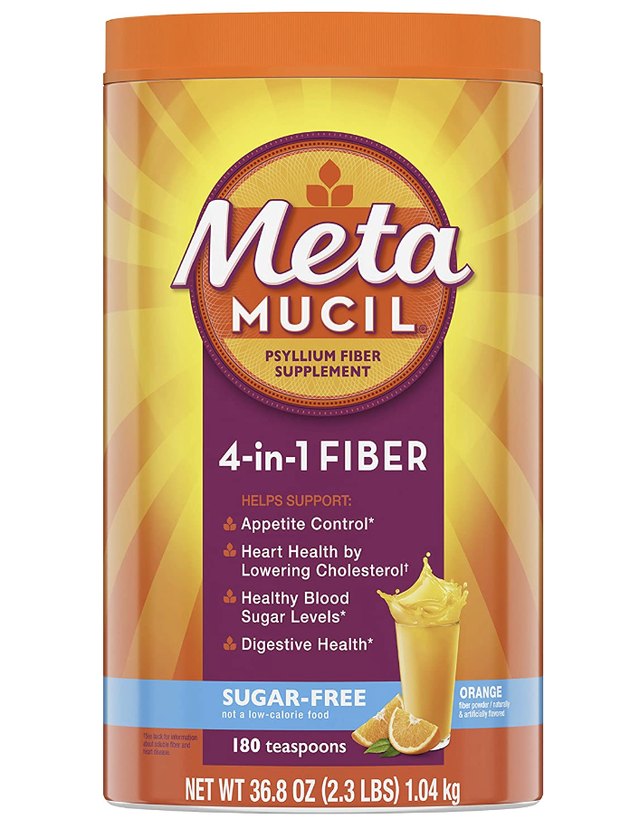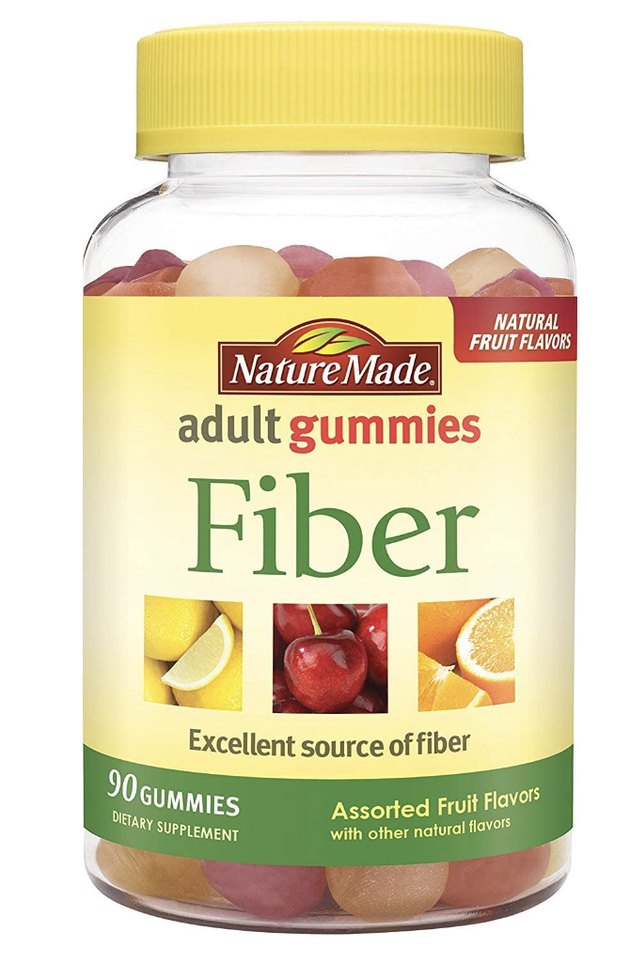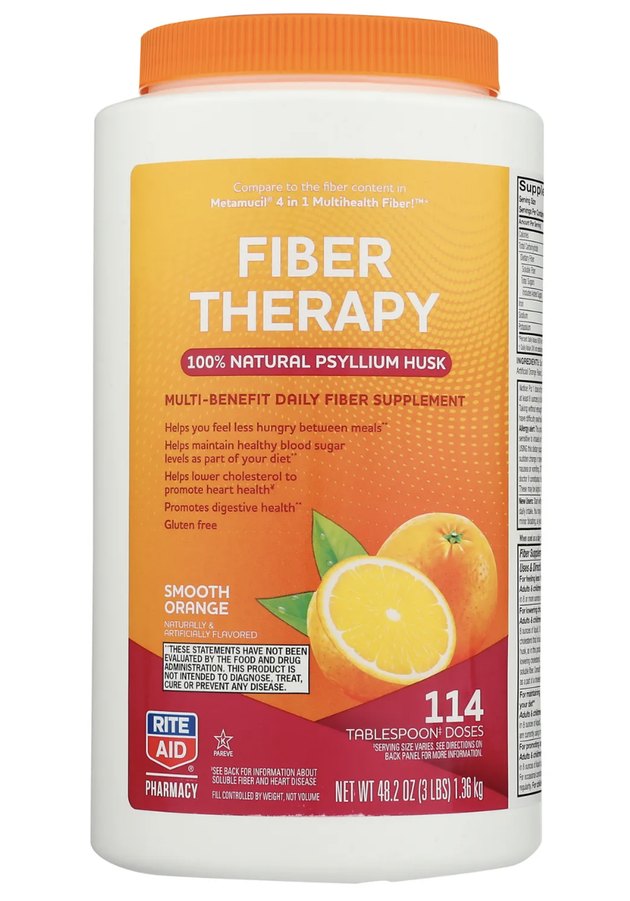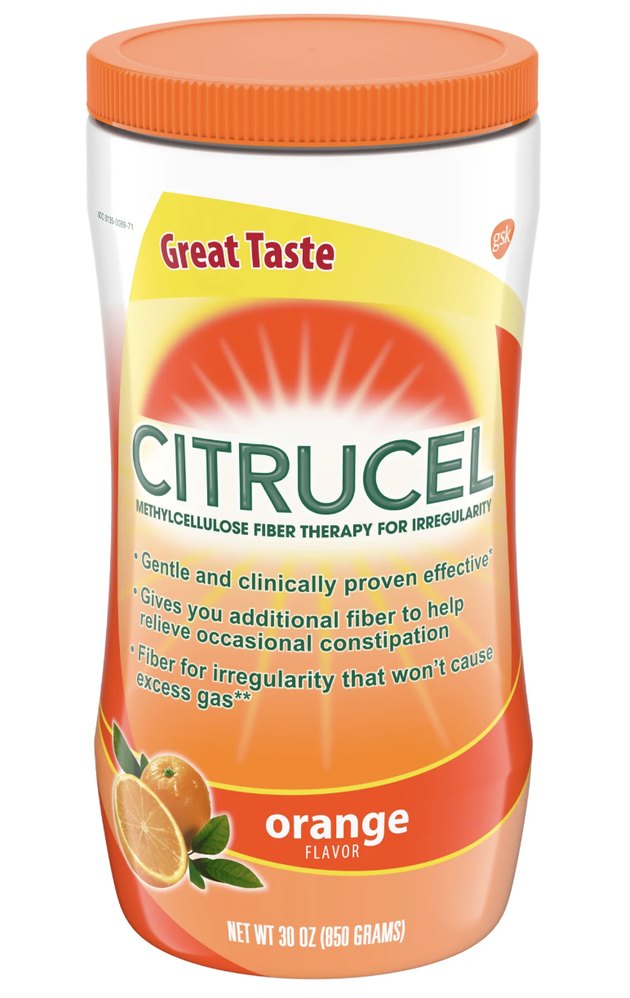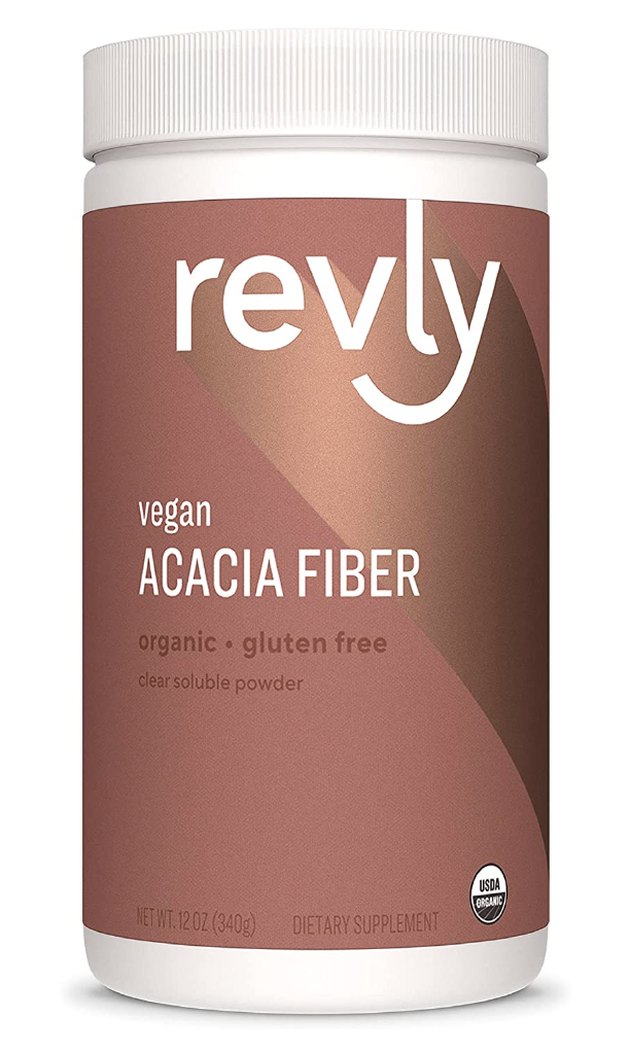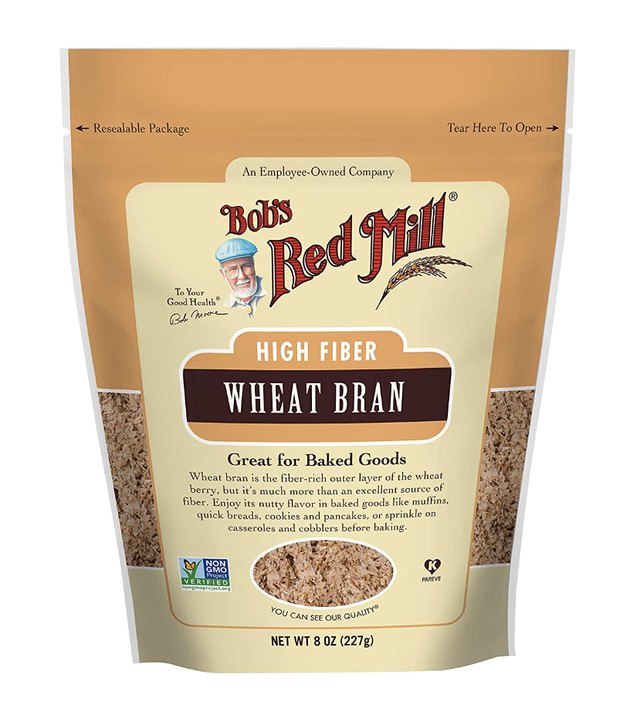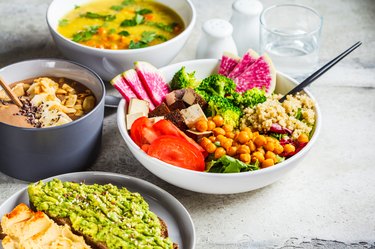
Fiber has become a buzzword in health and wellness, and for good reason — it can really do some good in your body. The nutrient can keep your digestive system healthy and is equally important for heart health and preventing diabetes. Plus, it can even help you achieve your weight-loss goals.
You should get your nutrients from whole foods whenever possible, but getting extra fiber from supplements may help you feel full, which can help with appetite control.
Video of the Day
Video of the Day
To be clear, though, fiber supplements are not weight-loss supplements and should not be used to induce a laxative effect to lose weight. And if you aren't following a healthy diet, it's unlikely that taking a fiber supplement is going to have much of an effect on your weight.
The Academy of Nutrition and Dietetics recommends adults get between 25 and 38 grams of fiber per day depending on body size and activity level. If you're not able to get this amount from your diet, here are some trusted supplements you can speak with your medical provider about.
The Best Fiber Supplements for Weight Loss
- Best Overall: Metamucil 4-in-1 Fiber ($32.98, Amazon)
- Best Chewable: Nature Made Adult Fiber Gummies ($22.99, CVS.com)
- Best on a Budget: Rite Aid Multihealth Fiber Supplement ($16.99, Riteaid.com)
- Best Gluten-Free: Citrucel Fiber Therapy ($14.97, Walmart.com)
- Best Vegan: Revly Organic Acacia Fiber Powder ($15.39, Amazon)
- Best Natural: Bob's Red Mill Wheat Bran ($7.29, Amazon)
How We Chose
Our writer leaned on her expertise as a registered dietitian, and selected the products below based on the following criteria. You can learn more about how we cover products here.
- Quality
- Type of fiber
- Ingredients
- Price
Warning
Fiber supplements can interact with some medications. Make sure to consult with your doctor or pharmacist before deciding to incorporate a supplement into your weight-loss plan.
1. Metamucil 4-in-1 Fiber
Pros
- Made with psyllium fiber
- Sugar-free
- Helps maintain healthy blood sugar levels
Cons
- Contains artificial sweeteners
This powdered supplement is made from psyllium, which is mostly a soluble fiber (the kind that absorbs water during digestion and helps you feel full). Two teaspoons of the stuff will give you 6 grams of fiber with no added sugar and no artificial sweeteners.
According to April 2017 research in the Journal of the American Association of Nurse Practitioners, psyllium fiber can have a stool-normalizing effect, which means that it can firm up loose stool and loosen constipated stool.
2. Nature Made Adult Fiber Gummies
Pros
- Fiber from inulin
- USP verified
Cons
- May take some time for your stomach to adjust
- Contain added sugar
If you can't stomach pills or powder, a gummy supplement might be your next choice. These gummies have 2 grams of added sugar per serving and will give you 6 grams of fiber from inulin.
Inulin is a prebiotic fiber, which means it can help aid in growing and keeping your gut bacteria healthy. According to March 2018 research in Current Developments in Nutrition, inulin from food sources can help support digestive health. In addition, an October 2015 study in Nutrition and Metabolism concluded that inulin supplementation could help promote weight loss.
Nature Made is a company well known for producing quality supplements, with a large number of their products containing the USP Verified Mark, which ensures they include what the label states.
3. Rite Aid Multihealth Fiber Supplement
Pros
- Budget-friendly
- Gluten-free
- Orange flavor
Cons
- Contains sugar
Each type of fiber supplement is usually available in a store brand, which is usually a good option if you are concerned with price. Turn the name brand and the store brand products over to compare the labels to see if everything is the same and if so, the store brand will usually be less expensive.
This fiber supplement from Rite Aid's line is comparable to Metamucil for about half the cost.
4. Citrucel Fiber Therapy
Pros
- Causes less gas and bloating
- Made with methylcellulose
- Orange flavored
Cons
- Contains 60 calories per serving
If you're following a gluten-free diet, then choosing a gluten-free fiber supplement is a must. Citrucel is fiber from methylcellulose, made from plant cellulose, and is free of gluten.
While many fiber types, such as psyllium (Metamucil), are technically gluten-free as well, if the packing doesn't specifically state its gluten-free status, then it still may contain traces of gluten from the manufacturing process.
Citrucel powder can be mixed with water and contains 2 grams of fiber per tablespoon, which is the serving size. It does contain 60 calories per tablespoon, mainly from sucrose and maltodextrin, so just keep that in mind if you're tracking calories.
A benefit from methylcellulose is that it's typically well tolerated, as this fiber type does not ferment in the colon, causing less gas and bloating.
5. Revly Organic Acacia Fiber Powder
Pros
- Vegan
- Sugar-free
- Certified organic
- Gluten-free
Cons
- Must be mixed thoroughly to avoid clumping
While most fiber supplements likely qualify as vegan (because fiber comes from plant sources), you can make sure by choosing a product that declares it on the label, like this option from Amazon. Acacia fiber, in particular, is a soluble dietary fiber made from the acacia tree.
One tablespoon (which you should mix into 8 ounces of liquid) delivers 5 grams of soluble fiber. It's free of sugar, and it's also certified organic and gluten-free.
6. Best Natural Fiber Supplement: Bob's Red Mill Wheat Bran
Pros
- Can be cooked into food
- Sugar-free
- Non-GMO
Cons
- Not as convenient as other mix-in powders
It's not a pill and you can't mix it into your morning coffee, but adding wheat bran to your daily meals might be the next best option to getting your fiber from fruits and veggies.
One-quarter cup will give you 6 grams of insoluble fiber, which can help you feel full and keep your digestive system moving along. There is no added sugar in wheat bran, and it can be cooked into foods or mixed into oatmeal or smoothies.
What to Look for in a Fiber Supplement
The first thing you need to know if you're considering a fiber supplement is that you should never drastically increase the amount of fiber in your diet all at once, because this can cause bloating and gas, according to the Mayo Clinic. If you feel the need for a supplement, or if your medical provider has recommended one, start slow and ramp up your water intake, too, to help prevent digestive woes.
1. Fiber Type
There are many different fiber sources, such as wheat bran (insoluble), inulin (soluble), psyllium (soluble) and beta-glucan (soluble), to name a few. It's important to have a conversation with your doctor to determine the best type for your specific health conditions and goals.
For people with inflammatory conditions such as Crohn's disease or colitis, for example, choosing the wrong supplement could make the condition worse. In addition, some fiber supplements are sourced from wheat, so those who have celiac disease or who otherwise need to eat a gluten-free diet should be careful.
What's the Difference Between Soluble and Insoluble Fiber?
Soluble fiber dissolves in water and turns into a gel-like material, while insoluble does not, per the Mayo Clinic. The two types of fiber have different outcomes in your body, too — while soluble fiber can help lower cholesterol, insoluble fiber helps you go.
2. No Added Sugar
If you're thinking that fiber tastes better when it's sweeter, then you should consider getting your fiber from fruit instead of a supplement. Many supplements add sugar to their fiber to make it taste better.
The American Heart Association recommends women should not have any more than 6 teaspoons of added sugar in a day and men should keep it below 9 teaspoons per day. Some fiber supplements have up to 4 teaspoons of added sugar per serving, and especially if you have weight loss as a goal, you don't need additional sugar in your diet.
How Fiber Can Help With Weight Loss
If you've been told to increase your plant foods (read: fruits and veggies) to lose a few pounds, fiber is one of the big reasons why. According to April 2018 research in Eating Behaviors, as fiber in the diet increased, body mass index (BMI) decreased significantly over a period of six months in African-American women.
If you are looking for consistency in health recommendations, look no further than fiber for weight loss and maintenance. According to a July 2018 review in Nutrients, nine large studies concluded that a higher fiber intake was associated with weight management. That means researchers found that fiber intakes over 20 grams per day (per 2,000-calorie diet) were better for weight management and prevention of weight gain.
It's worth noting that most studies have evaluated the effects of fiber from food, so the same benefits can't necessarily be attributed to fiber supplements. Plus, getting your fiber from a supplement means you're missing out on the vitamins, minerals and other nutrients that fiber-rich foods provide, per the Mayo Clinic.
However, people who have certain dietary restrictions, such as a gluten intolerance, or who find it difficult to incorporate enough plant-based foods into their diet may benefit from a fiber supplement.
The Bottom Line on Fiber Supplements and Weight Loss
If you are currently on a weight-loss plan or considering it, fiber should be part of your diet. Whether it comes from food or from supplements, it is clear that fiber is helpful for weight loss and maintenance, but it's not a magic pill or quick-fix.
If you are worried about a fiber supplement interfering with or exacerbating a current condition, speak with your doctor or a registered dietitian to help you choose one that's right for you.
Ready to Lose Weight?
Set yourself up for success with LIVESTRONG.com's Weight-Loss Kickstart program.
- Linus Pauling Institute: "Micronutrient Information Center: Fiber"
- Academy of Nutrition and Dietetics: "Easy Ways to Boost Fiber"
- Eating Behaviors: "Associations Between Fiber Intake and Body Mass Index (BMI) Among African-American Women Participating in a Randomized Weight Loss and Maintenance Trial"
- Nutrients: "Dietary Fibre as a Unifying Remedy for the Whole Spectrum of Obesity-Associated Cardiovascular Risk"
- Journal of the American Association of Nurse Practitioners: "Fiber supplements and clinically proven health benefits: How to Recognize and Recommend an Effective Fiber Therapy"
- USP: "Dietary Supplements and Herbal Medicines"
- Current Developments in Nutrition: "Health Effects and Sources of Prebiotic Dietary Fiber"
- Nutrition and Metabolism: "A randomized controlled trial: "The Effect of Inulin on Weight Management and Ectopic Fat in Subjects With Prediabetes"
- American Heart Association: "Added Sugars"
- Mayo Clinic: "Fiber supplements: Safe to take every day?"
- Mayo Clinic: "Dietary fiber: Essential for a healthy diet"
